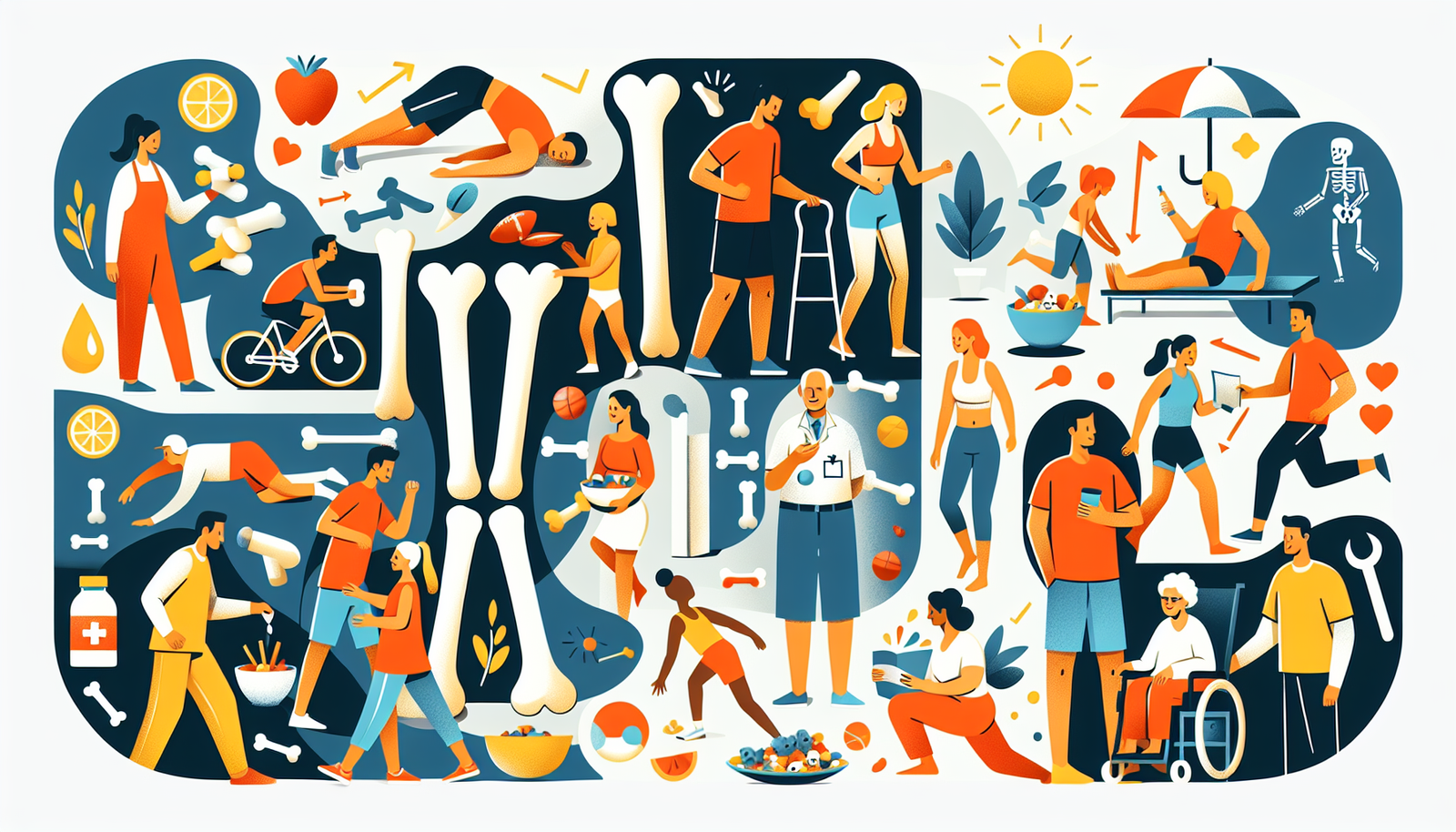How to Reduce Inflammation Through Lifestyle Changes
How to Reduce Inflammation Through Lifestyle Changes
Understanding Inflammation
Inflammation is a vital part of the immune response, allowing the body to combat infections and heal injuries. However, chronic inflammation can lead to serious health issues, including heart disease, diabetes, and arthritis. It is crucial to adopt lifestyle changes that can help mitigate this condition. Below are actionable strategies to help reduce inflammation effectively.
1. Nutrition: The Foundation of an Anti-Inflammatory Lifestyle
-
Incorporate Antioxidant-Rich Foods: Foods high in antioxidants, such as berries (blueberries, strawberries), dark chocolate, and leafy greens (kale, spinach), neutralize free radicals and reduce oxidative stress, which plays a significant role in inflammation.
-
Emphasize Omega-3 Fatty Acids: Fatty fish like salmon, trout, and sardines, as well as flaxseeds and walnuts, are rich in omega-3 fatty acids. These essential fats have been shown to decrease pro-inflammatory markers.
-
Prioritize Whole Grains: Opt for whole grains over refined grains. Brown rice, quinoa, and oats contain fiber and nutrients that can combat inflammation.
-
Use Healthy Fats: Replace saturated fats with monounsaturated fats sourced from olive oil, avocados, and nuts. These fats are beneficial for heart health and have anti-inflammatory properties.
-
Limit Processed Foods and Sugars: Processed snacks, sugary beverages, and fast foods can increase inflammation. Try to avoid trans fats and added sugars as much as possible.
-
Focus on Cruciferous Vegetables: Broccoli, Brussels sprouts, cauliflower, and cabbage contain sulforaphane, which helps lower inflammation and reduce the risk of chronic disease.
- Drink Plenty of Water: Staying hydrated can help the body flush out toxins. Adequate water intake supports overall health, contributing to better immune function.
2. Maintaining a Healthy Weight
Excess body fat, especially around the abdomen, can contribute to chronic inflammation. Following these tips can help manage weight effectively:
-
Adopt Portion Control: Be mindful of serving sizes. Utilize smaller plates and bowls to help control portions intuitively.
-
Increase Physical Activity: Aim for at least 150 minutes of moderate aerobic exercise, like brisk walking or cycling, weekly. Regular activity can help mobilize existing fat stores and mitigate inflammation.
- Include Strength Training: Incorporate strength training exercises at least twice a week. Building muscle mass can enhance metabolic rate and reduce body fat percentage, helping ease inflammation.
3. Regular Physical Activity
Exercise is a powerful tool against inflammation. Here’s how to incorporate it into your life:
-
Engage in Aerobic Exercises: Activities such as swimming, running, or dancing can boost circulation, promote weight loss, and encourage the release of anti-inflammatory markers.
-
Practice Yoga or Pilates: These low-impact workouts not only improve flexibility and strength but also reduce stress, which is a significant contributor to inflammation.
- Explore Outdoor Activities: Nature walks or hiking can provide the dual benefits of exercise and exposure to vitamin D, which can further assist in reducing inflammation.
4. Stress Management Techniques
-
Adopt Mindfulness Practices: Mindfulness meditation can reduce stress, resulting in lower levels of inflammatory cytokines. Techniques include breathing exercises and guided imagery.
-
Make Time for Relaxation: Incorporating hobbies, reading, or spending time with loved ones can provide mental relief, which in turn helps to control inflammation.
- Prioritize Sleep: Aim for 7–9 hours of sleep each night. Quality sleep is essential for regulating inflammatory processes within the body. Establish a consistent sleep schedule and create a calming bedtime routine.
5. Avoiding Inflammatory Triggers
Certain substances can exacerbate inflammation. Take measures to limit or avoid them:
-
Eliminate Tobacco Use: Smoking is a significant source of chronic inflammation in the body. Seek support for cessation if necessary.
-
Limit Alcohol Consumption: Excessive alcohol intake can increase inflammatory markers. Moderation is key; women should limit to one drink per day, while men should keep it to two.
- Be Cautious with Food Intolerances: Certain foods can trigger inflammation in those with intolerances or allergies. Work with a healthcare professional to identify any problematic foods.
6. Supplements That Support an Anti-Inflammatory Diet
While a balanced diet is the best approach, certain supplements can enhance your anti-inflammatory efforts:
-
Curcumin: Found in turmeric, curcumin possesses powerful anti-inflammatory properties. It can be taken as a supplement or incorporated into meals.
-
Ginger: This spice can help alleviate inflammation. Consider consuming fresh ginger tea or adding it to smoothies or meals.
-
Green Tea Extract: Rich in polyphenols, particularly epigallocatechin gallate (EGCG), green tea can ward off inflammation. Drink green tea regularly or consider supplements if preferred.
- Probiotics: A healthy gut microbiome can significantly influence inflammation levels. Probiotic foods, like yogurt and fermented vegetables, support gut health.
7. Creating a Supportive Environment
The environment plays a vital role in health and can either promote or detract from an anti-inflammatory lifestyle:
-
Declutter and Organize: A tidy space can help reduce stress, contributing indirectly to lowering inflammation levels.
-
Incorporate Plants: Having indoor plants can enhance air quality and promote mental well-being, which can minimize stress-related inflammation.
- Limit Exposure to Pollutants: Try to reduce your exposure to environmental toxins, such as industrial chemicals and heavy metals. Consider using air purifiers and maintain clean indoor air.
8. Collaborating with Healthcare Professionals
Partnering with healthcare professionals can provide tailored strategies:
-
Consult a Nutritionist: A registered dietitian can help create a personalized meal plan that is focused on anti-inflammatory foods.
-
Work with a Personal Trainer: Collaborate with a certified trainer to develop an exercise regimen specific to your needs and capabilities.
- Regular Check-Ups: Consistent visits to a healthcare provider can help monitor inflammation levels, track progress, and adjust lifestyle strategies accordingly.
9. Understand the Role of Genetics and Epigenetics
Not everyone responds to inflammation in the same way. Understanding your genetic predisposition can offer insights:
-
Know Your Family History: If there are chronic inflammatory diseases in your family, take proactive steps towards an anti-inflammatory lifestyle.
- Engage in Epigenetics: Epigenetic research shows that lifestyle can alter the expression of certain genes. Embrace healthy habits to influence how your genes express themselves concerning inflammation.
10. Stay Informed About Inflammation Research
Keeping abreast of the latest scientific research can inform your lifestyle choices:
-
Read Medical Journals and Articles: Subscribing to reputable health newsletters can provide valuable insights into new anti-inflammatory treatments and discoveries.
- Participate in Community Health Events: Workshops, seminars, or health fairs can connect you with professionals and individuals leading anti-inflammatory lifestyles.
By making these lifestyle changes, you can create a sustainable approach to reducing inflammation and enhancing your overall health and longevity. Prioritize consistency and focus on small, manageable steps for the most significant impact on your journey towards a more anti-inflammatory life.








